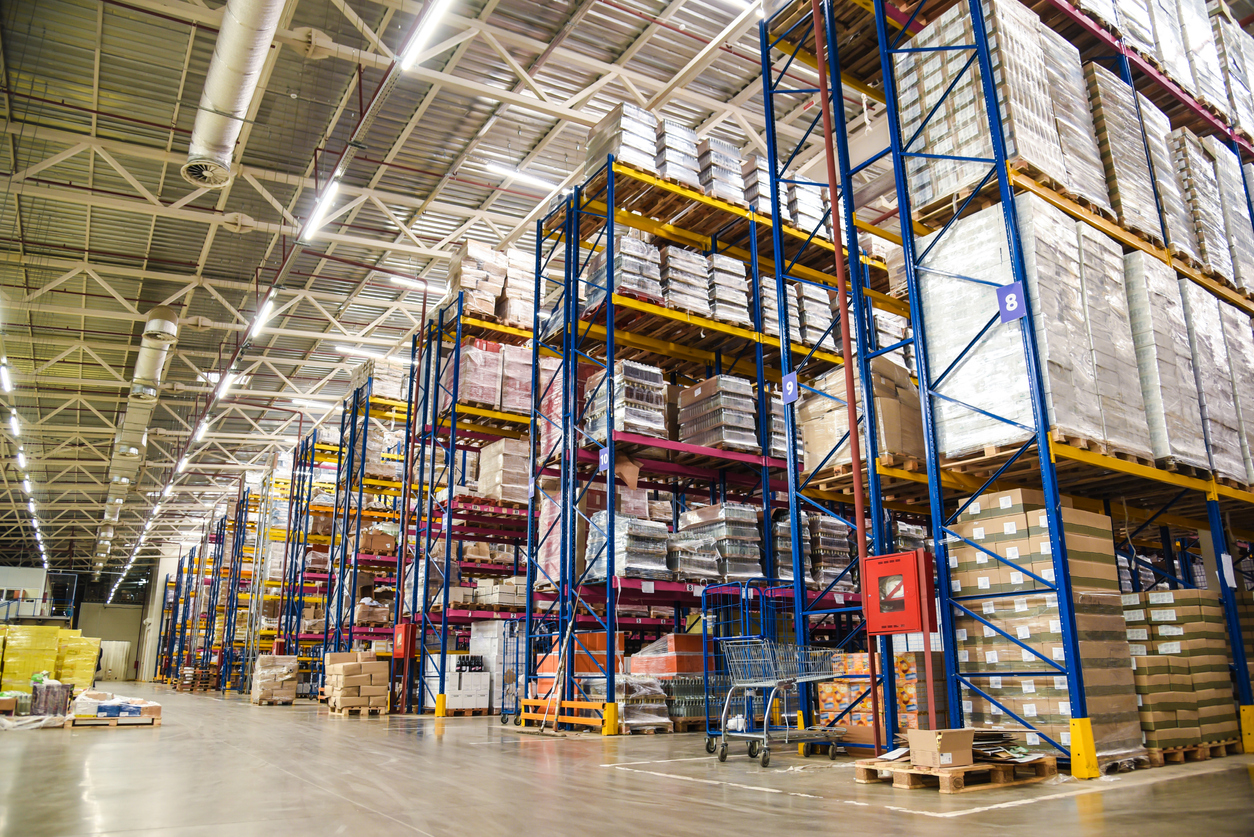How to Start Your Own Food Distribution Business in the UK
How to Start Your Own Food Distribution Business in the UK
Are you passionate about food and looking to embark on an exciting entrepreneurial journey? Look no further! Starting your own food distribution business could be the perfect opportunity for you. With a thriving industry, diverse culinary landscape, and a growing demand for convenience, starting a food distribution business in the UK can be both lucrative and fulfilling. In this blog post, we will guide you through everything you need to know – from understanding market trends to obtaining necessary licenses – so that you can set up your own successful venture in the world of food distribution. Get ready to tantalize taste buds and satisfy cravings as we dive into the delicious details of starting your very own food distribution empire!
Introduction to the Food Distribution Industry in the UK
The food distribution industry in the UK is a multi-billion pound market that plays a crucial role in ensuring the availability of food to consumers. It involves the movement of food products from manufacturers and producers to various retail outlets such as supermarkets, restaurants, and other food establishments.
According to research by IBISWorld, the UK food distribution industry has experienced steady growth over the past five years, with a current revenue of over £109 billion. This growth can be attributed to several factors such as an increasing population, changing consumer preferences, and advancements in technology.
One of the main reasons for the success of this industry is its ability to adapt and evolve according to market demands. With new trends emerging constantly in the food sector, distributors must stay updated and flexible to meet these changing demands.
The UK food distribution industry can be broadly divided into three main categories: fresh produce, packaged goods, and specialty items. Fresh produce includes fruits, vegetables, meat, poultry, and seafood; while packaged goods refer to processed foods such as canned goods or frozen meals. Specialty items include organic products or international cuisine.
In recent years, there has been a growing demand for locally sourced and sustainable foods among UK consumers. This trend has led many distributors to focus on sourcing products from local farmers or smaller-scale producers rather than relying solely on large manufacturers.
Market Analysis: Understanding the Demand and Competition
Market Analysis is a crucial step in starting any business, and the food distribution industry is no exception. Understanding the current demand and competition in the market is essential for creating a successful food distribution business in the UK.
Understanding Demand:
Before starting your food distribution business, it’s crucial to understand the demand for your products. In the UK, there is a growing trend towards healthy eating, organic products, and ethically sourced foods. As such, there is an increasing demand for fresh produce, locally sourced meats and dairy products, and specialty items like gluten-free or vegan options.
It’s essential to research consumer trends and preferences in different regions of the UK to determine which products have higher demand in specific areas. This will help you tailor your product offerings to meet local demands effectively.
Additionally, understanding seasonal fluctuations in demand can also be beneficial for planning your inventory levels. For example, there may be higher demand for certain types of fruits or vegetables during specific times of the year due to seasonality or holidays.
Understanding Competition:
The food distribution industry in the UK is highly competitive with many players operating at different levels – from small locally based distributors to large national companies. Therefore, conducting thorough research on existing competitors’ strengths and weaknesses is vital before entering this market.
Identifying direct competitors who offer similar products as yours can give you insight into their pricing strategies, delivery methods, customer base, and overall operations. This information can help you position yourself differently by offering unique value propositions or targeting untapped markets.
Steps to Starting Your Own Food Distribution Business
Starting a food distribution business can be a lucrative venture, especially in the UK where there is a high demand for quality and diverse food products. However, like any other business, it requires careful planning and preparation to ensure success. Here are the steps you need to follow to start your own food distribution business in the UK:
1. Identify Your Niche: The first step towards starting your own food distribution business is to identify your niche. This could be anything from supplying organic produce to high-end restaurants or focusing on delivering ethnic foods to specialty stores. It’s important to choose a niche that you are passionate about and have knowledge about so that you can provide value-added services.
2. Conduct Market Research: Once you have identified your niche, it’s essential to conduct thorough market research. This will help you understand the demand for the products in your chosen niche, competition, and potential customers’ preferences. Market research will also help you determine the pricing strategy for your products and identify any gaps in the market that you can fill.
3.Calculate Start-up Costs and Create a Business Plan: After conducting market research, it’s time to create a detailed business plan that includes all the necessary information such as start-up costs, projected expenses, marketing strategies, target audience, revenue projections, etc. It will serve as a roadmap for your business and help secure funding from investors or banks if needed.
– Legal Requirements and Registrations
Starting a food distribution business in the UK is an exciting venture, but it comes with certain legal requirements and registrations that must be fulfilled. This section will guide you through the necessary steps to ensure your business is operating legally and within the regulations set by the government.
1. Business Structure
The first step in setting up your food distribution business is deciding on a suitable business structure. This could be as a sole trader, partnership, or limited company. Each structure has its own legal implications and it’s important to choose one that suits your needs and future plans for your business. Consult with a legal professional or an accountant to determine which structure would be most suitable for you.
2. Register Your Business
Once you have decided on a business structure, you will need to register your business with Companies House if you plan to operate as a limited company. For sole traders or partnerships, registration is not mandatory but it is recommended for tax purposes. You can also register for VAT if your annual turnover is over £85,000 (as of 2020). This will require additional paperwork and periodic returns.
3. Obtain Necessary Licenses
In addition to registering your business, there are specific licenses required for operating a food distribution business in the UK. These include:
– Food Hygiene License: Any premises involved in handling food must have this license which ensures compliance with hygiene standards.
– Environmental Health Inspection: This inspection evaluates the cleanliness of your premises and adherence to health and safety regulations.
– Choosing a Niche or Specialty
When starting a food distribution business in the UK, one of the first and most important decisions you will need to make is choosing a niche or specialty. This refers to the specific type of food or products that your business will specialize in distributing. Selecting the right niche can greatly impact the success of your business, as it can help distinguish you from competitors and attract a loyal customer base.
Here are some key considerations to keep in mind when choosing a niche for your food distribution business:
1. Identify Your Strengths and Interests: The first step in choosing a niche is to evaluate your strengths and interests. What kind of foods do you have expertise in? Do you have any personal interests or passions related to specific types of cuisine? Identifying these factors can help narrow down potential niches that align with your skills and knowledge.
2. Research Market Demand: It’s important to research the market demand for different types of foods before choosing a niche. Look at current trends, consumer preferences, and any gaps or opportunities in the market that you can fill with your chosen niche. You may also want to consider conducting surveys or focus groups to get feedback from potential customers.
3. Consider Competition: While it’s important to select a unique niche, it’s also essential to consider competition within that particular market segment. Are there already established distributors offering similar products? If so, how can you differentiate yourself from them? Look for ways to add value or offer something different than what is currently available.
– Sourcing Suppliers and Establishing Partnerships
Sourcing Suppliers and Establishing Partnerships:
One of the most crucial aspects of starting a food distribution business is sourcing reliable suppliers and establishing strong partnerships with them. This step is essential as your success in the industry largely depends on the quality and consistency of your products, which are directly linked to your suppliers. In this section, we will discuss some important considerations for sourcing suppliers and establishing partnerships in the UK.
1. Understand Your Needs:
Before you start looking for suppliers, it’s vital to understand your specific needs as a food distribution business. What types of products do you want to offer? What quantities do you require? Do you have any specific quality standards or certifications that need to be met? Having a clear understanding of these factors will help you narrow down your search for potential suppliers.
2. Research Potential Suppliers:
Once you have identified your needs, it’s time to research potential suppliers who can meet those requirements. The best way to do this is by attending trade shows, networking events, or reaching out to other businesses in the industry for recommendations. You can also use online platforms such as Alibaba or ThomasNet to find a wide range of suppliers.
3. Consider Quality and Price:
When evaluating potential suppliers, it’s essential to consider both quality and price. While it may be tempting to choose the cheapest option available, compromising on quality could have negative consequences for your business in the long run.
– Setting Up Operations and Logistics
Setting up operations and logistics is a crucial step in starting any business, especially a food distribution business. It involves establishing the necessary infrastructure, processes, and systems to ensure smooth operations and efficient delivery of products to customers. In this section, we will discuss the key aspects of setting up operations and logistics for your food distribution business in the UK.
1. Establishing a Supply Chain: The first step in setting up operations for your food distribution business is to establish a reliable supply chain. This includes finding suppliers who can consistently provide high-quality products at competitive prices. You should also consider factors such as their location, delivery schedules, and payment terms while selecting suppliers.
2. Procuring Vehicles: Since you will be delivering perishable food items, having reliable vehicles is essential for your business’s success. Depending on the volume of orders, you can either purchase or lease vehicles suitable for transporting your products safely.
3. Warehouse Management: A well-organized warehouse is crucial for managing inventory effectively and ensuring timely deliveries to customers. You can choose to have one central warehouse or multiple smaller ones based on your business’s size and geographic reach.
4. Implementing Inventory Management Systems: With perishable goods, it is essential to keep track of expiration dates and stock levels regularly. Investing in an inventory management system will help you maintain accurate records of all incoming and outgoing products.
5. Hiring Staff: As your business grows, you may need to hire additional staff members such as drivers, warehouse workers, administrative personnel, etc
Funding and Financing Options
When starting a food distribution business in the UK, securing funding and financing is essential. This section will discuss various options available to entrepreneurs to fund their venture.
1. Personal Savings:
Using your personal savings is often the most straightforward way of funding your business. It eliminates the need for applying for loans or sharing ownership with investors. However, it requires discipline and careful budgeting to ensure that your savings can cover all the expenses associated with starting a food distribution business.
2. Bank Loans:
Banks are a common source of funding for small businesses, including food distribution ones. You can approach banks for traditional term loans or opt for lines of credit or overdrafts, depending on your needs and financial status. These types of loans typically come with a fixed interest rate and repayment terms that you must adhere to strictly.
3. Government Grants:
The UK government offers various grants and schemes to support entrepreneurs in setting up their businesses, including those in the food distribution sector. These grants may be available at both national and local levels, so it’s worth researching what opportunities are available in your area.
4. Crowdfunding:
Crowdfunding has become a popular option for startups to raise funds from multiple investors through online platforms such as Kickstarter or Indiegogo. As a food distributor, you could offer rewards such as discounted products or exclusive access to new products in exchange for contributions from supporters.
Marketing Strategies for a Successful Launch
Marketing Strategies for a Successful Launch
Launching a new food distribution business in the UK can be an exciting and daunting task. One of the key factors for a successful launch is having effective marketing strategies in place. In this section, we will discuss some essential marketing strategies that can help you create a buzz around your new food distribution business and attract potential customers.
1. Define Your Target Market
Before launching your food distribution business, it’s crucial to identify your target market. This will help you understand their needs, preferences, and buying behavior. You can conduct market research to gather information about your potential customers’ demographics, interests, and spending habits. This data will help you tailor your marketing efforts to reach the right audience.
2. Develop a Strong Brand Identity
Branding plays a significant role in creating brand awareness and attracting customers to your business. Your brand identity includes your business name, logo, tagline, color scheme, and overall visual representation of your company. It should be consistent across all marketing channels to establish a strong presence in the competitive food industry.
3. Utilize Social Media
In today’s digital age, social media platforms are powerful tools for promoting businesses and reaching potential customers at minimal costs. Create profiles on popular social media platforms like Facebook, Instagram, Twitter or LinkedIn (if targeting B2B clients) to showcase your products/services and engage with followers through regular posts and updates.
Managing Inventory and Supply Chain
Managing Inventory and Supply Chain
In any business, managing inventory and supply chain is a crucial aspect that can make or break its success. This is especially true in the food distribution industry, where timely delivery of fresh products is essential to maintain customer satisfaction.
To effectively manage your inventory and supply chain, here are some key steps you need to follow:
1. Plan Your Inventory Levels: The first step in managing inventory is to determine the right balance between having enough stock to fulfill orders and avoiding excess stock that may spoil or become obsolete. This requires careful planning based on market demand, seasonality, and shelf life of your products.
2. Utilize Technology: In today’s digital age, there are numerous software solutions available for inventory management. These tools can help you track stock levels, monitor expiration dates, and generate reports on sales trends – all of which are vital for effective inventory management.
3. Partner with Reliable Suppliers: As a food distributor, you rely heavily on your suppliers for the quality and timely delivery of products. It’s essential to establish strong relationships with reliable suppliers who can meet your demands consistently.
4. Implement Just-in-Time (JIT) Systems: JIT systems involve ordering products only when needed rather than keeping large quantities in stock at all times. This approach can be cost-effective as it minimizes storage costs while ensuring fresh products are delivered to customers.
Overcoming Challenges and Adapting to Changes in
As with any business venture, starting a food distribution business in the UK comes with its own set of challenges and changes. It is important to be prepared for these obstacles and have strategies in place to overcome them. In this section, we will discuss some common challenges that you may face when starting your own food distribution business and provide tips on how to adapt to changes in the industry.
1. Competition:
One of the biggest challenges you may encounter when starting your food distribution business is competition. The UK food market is highly competitive, with large established players dominating the market. This can make it difficult for new businesses to break into the industry.
To overcome this challenge, it is important to do thorough research on your competitors and identify what sets your business apart from them. This could be offering unique products or services, having a strong brand identity or providing exceptional customer service. Differentiating yourself from competitors will help you stand out and attract customers.
2. Regulations and Permits:
The food industry in the UK is heavily regulated, with strict laws governing food handling, storage, and transportation. As a food distributor, you will need to obtain various permits and licenses before you can start operating legally.
To navigate through these regulations smoothly, it is essential to familiarize yourself with all the necessary requirements beforehand. Consult with local authorities or hire a legal expert who specializes in this area to ensure that you have all the necessary permits in place before launching your business.








Comments are closed.